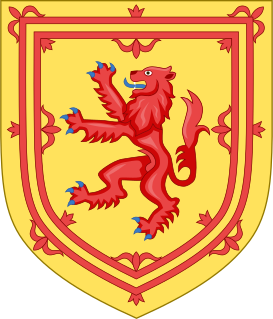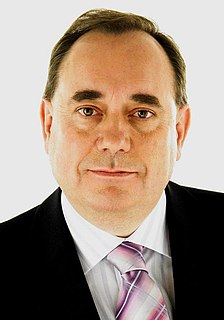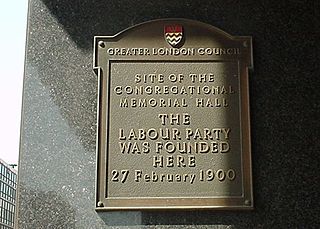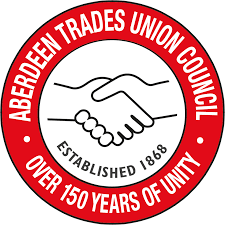Related Research Articles

James Keir Hardie was a Scottish trade unionist and politician. He was a founder of the Labour Party, and served as its first parliamentary leader from 1906 to 1908.

The Independent Labour Party (ILP) was a British political party of the left, established in 1893, when the Liberals appeared reluctant to endorse working-class candidates, representing the interests of the majority. A sitting independent MP and prominent union organiser, Keir Hardie, became its first chairman.

The Scottish Labour Party (SLP), also known as the Scottish Parliamentary Labour Party, was formed by Robert Bontine Cunninghame Graham, the first socialist MP in the Parliament of the United Kingdom, who later went on to become the first president of the Scottish National Party, and Keir Hardie, who later became the first leader of the Independent Labour Party.

The 1980 Glasgow Central by-election was a by-election held on 26 June 1980 for the British House of Commons constituency of Glasgow Central, following the death of its sitting MP, Thomas McMillan.

The 1973 Berwick-upon-Tweed by-election was a parliamentary by-election held on 8 November 1973 for the House of Commons constituency of Berwick-upon-Tweed. It was one of four UK by-elections held on the same day.
The 1888 Mid Lanarkshire by-election was a parliamentary by-election held on 27 April 1888 for the House of Commons constituency of Mid Lanarkshire in Scotland.

The 2012 Scottish local elections, were held on 3 May 2012 in all 32 local authorities. The Scottish National Party (SNP) overtook Labour to win the highest share of the vote, and retained and strengthened its position as the party with most councillors. Labour also made gains, while the Liberal Democrats experienced meltdown, losing over half their seats and falling behind the Conservatives. For the first time since the introduction of the Single Transferable Vote system, the SNP won majority control of 2 councils, from no overall control. Labour also won majority control of 2 councils from no overall control, while retaining majority control over 2 councils.
Robert Chisholm Robertson was a Scottish political activist.
A by-election was held for the British House of Commons constituency of Sheffield Attercliffe on 4 May 1909.
A by-election was held for the British House of Commons constituency of Sheffield Attercliffe on 5 July 1894. It was the first parliamentary election contested by the Independent Labour Party.
The Labour Electoral Association was a political organisation in the United Kingdom which aimed to get working men elected to Parliament.
The 1902 Dewsbury by-election was a by-election held in England on 28 January 1902 for the House of Commons constituency of Dewsbury in the West Riding of Yorkshire.

The 1938 Aylesbury by-election was a parliamentary by-election for the British House of Commons constituency of Aylesbury on 19 May 1938.

The Labour Representation Committee (LRC) was a pressure group founded in 1900 as an alliance of socialist organisations and trade unions, aimed at increasing representation for labour interests in the Parliament of the United Kingdom. The Labour Party traces its origin to the LRC's foundation.
William Small was a Scottish trade unionist.
Glasgow Trades Council is an association of trade union branches in Glasgow in Scotland.

Aberdeen Trades Union Council (ATUC) is the body made up of affiliated trade union branches and organisations working in the Aberdeen and Aberdeenshire area to promote the interests of workers in the region. The ATUC provides services to affiliated branches on a wide range of industrial, social and community issues and is affiliated to the STUC. It has an office based in Aberdeen, Scotland.
This article is about the sponsorship of British Members of Parliament by mining trade unions.
Trade union sponsorship of UK Members of Parliament was a phenomenon whereby a union supported a member of the House of Commons with financial contributions.
References
- William H. Marwick, Scotland in Modern Times